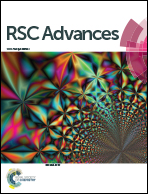Experimental and model research on chloride ion gas–solid distribution in the process of desulfurization wastewater evaporation
Abstract
In this paper, research on chloride ion gas–solid distribution in the process of desulfurization wastewater evaporation was carried out. The factor analysis of temperature, pH, and concentrations of Cl– Na+, Ca2+ and Mg2+ was explored by orthogonal experiments. Results show that the distribution coefficient increases with increasing temperature and Mg2+ concentration and decreasing pH, but decreases with increasing concentrations of Cl−, Ca2+ and Na+; The interaction and significance of each factor were compared and analyzed, and the order of influence significance on the chloride ion gas–solid distribution coefficient is listed as: temperature (0.781) > pH (0.611) > Cl− concentration (0.366 ) > Mg2+ concentration (0.211) > Ca2+ concentration (0.079) > Na+ concentration (0.03). A chloride ion gas–solid phase distribution coefficient model ranging from 180 °C to 380 °C was built based on phase equilibrium theory and state equations. The study clarifies the gas phase transformation mechanism of chloride ions, and achieves the quantification and prediction of chloride ion volatilization under different environmental and water quality parameters; an important theoretical and practical reference for the application of high temperature flue gas evaporation technology is provided through the research.



 Please wait while we load your content...
Please wait while we load your content...